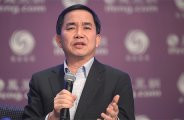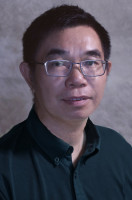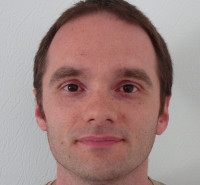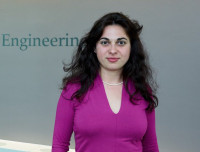Finance, Investment & Risk Management
Economics & Global Development
Societal Challenges
Emerging Market
Financial Markets, Modelling & Pricing
Behavioral Economics & Decision Sciences
Economic Loss & Disaster Risk Financing
AXA Chairs
Hong Kong
2014.09.22
HKU-AXA Senior Fellowship on China’s Market Reform
To tackle such an ambitious program, Prof. Chen has assembled an interdisciplinary team of experts in economics, finance, marketing and sociology addressing the question on multiple levels. For one, they will establish the role of the media in this emerging market, where information does not move freely. When investors cannot distinguish between good companies and bad, they invest in both, and even high-quality businesses risk being pushed out. A free press is, thus, vital for reducing uncertainty and allowing a healthy market to develop. Understanding the impact of Chinese information restrictions may offer opportunities to mitigate the associated risks.
The failure of unreliable institutions’ to enforce contracts between borrowers and lenders is another factor at play and may affect interest rates on loans. To explore this phenomenon, Prof Chen is assembling a comprehensive database of historical records from across China, going back to the year 1700. Looking also to the future, the team is observing changes in society itself. For example, individuals today rely less on family and children as insurance against risk, turning instead to investment opportunities in retirement funds, insurance products, and more. By conducting biannual surveys over the next decade, Prof. Chen will be able to track how people across China consume, save and invest; how they handle their finances during sickness and retirement; how they feel about financial risk and the strategies they use to manage it. By providing such a wealth of information, this project will shed significant light on the complex interplay between markets and society, in a context where both are evolving at a frantic pace. The knowledge obtained about Chinese society could offer guidance to policy makers in this and other developing economies as they seek to reduce the risks inherent to the process and emerge healthy and strong.
Prof. Chen’s research program aims to better understand, assess and manage socio-economic risks in large emerging market economies such as China. This cross-disciplinary program focuses on how human societies have developed ways to deal with risks, such as natural disaster, information risks, social change and financial risks. Sharing his understanding of the social impact of modern risk markets will benefit both policy makers and society.
Changing Societies, Evolving Markets: The Interaction of Culture and Finance in China
To add or modify information on this page, please contact us at the following address: community.research@axa.com

Zhiwu
CHEN
Institution
The University of Hong Kong
Country
Hong Kong
Nationality
Chinese
Related articles
Finance, Investment & Risk Management
Societal Challenges
Microfinance & Financial Inclusion
Emerging Market
Inequality & Poverty
Joint Research Initiative
China
2021.04.19
Understanding the Financial Lives of Low Income Households in China
Leveraging financial diaries research methodology, this joint initiative aims to provide actionable insights about the financial lives of low-income households... Read more

Xiugen
MO
Chinese Academy of Financial Inclusion
Finance, Investment & Risk Management
Pandemics & Infectious Diseases
Economics & Global Development
Covid-19
Financial Markets, Modelling & Pricing
Economic Loss & Disaster Risk Financing
Insurance & Risk Management
AXA Award
France
2020.08.31
An Extreme Value Model For the Analysis of the COVID-19 Pandemic and Its Impact, and the Mitigation of Future Related Crises
The second strand of work will harness the vast wealth of functional data at our disposal to construct estimators for... Read more

Gilles
STUPFLER
